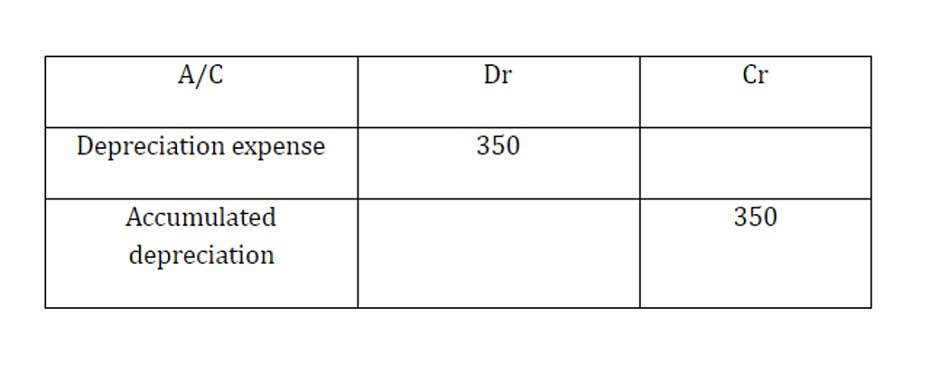
For simplicity, in all scenarios, you charge a subscription fee of $25 per month for clients to use your SaaS product. Since unearned revenue is cash received, it shows as a positive number in the operating activities part of the cash flow statement. It doesn’t matter that you have not earned the revenue, only that the cash has entered your company. Deferred revenue is typically reported as a current liability on a company’s balance sheet because prepayment terms are typically for 12 months or less. As a result of this prepayment, the seller has a liability equal to the revenue earned until the good or service is delivered.
- In the accounting world, unearned revenue is money collected by a company before providing the corresponding goods or services.
- Companies must ensure transparency in their financial statements by correctly reporting unearned revenue according to accounting standards.
- Under accrual basis accounting, you record revenue only after it’s been earned—or “recognized,” as accountants say.
- Unearned revenue, also called deferred revenue or advanced payment, is money that has been paid to your business for goods or services that you have not yet delivered.
- Upon receipt of the payment, the company’s accountant records a debit entry to the cash and cash equivalent account and a credit entry to the deferred revenue account for $1,200.
- Properly managing unearned revenue is crucial for industries such as software or subscription-based services where prepayments are the norm.
- Here’s how to handle this type of transaction in business accounting.
How to Record Unearned Revenue
Companies must ensure transparency in their financial statements by correctly reporting unearned revenue according to accounting standards. This is crucial in building trust among investors, shareholders, and other stakeholders. In the context of unearned revenue, recording revenue prematurely violates this principle.

Periodic review and adjustment
According to the accounting equation, assets should equal the sum of equity plus liabilities. Keep a detailed schedule of unearned revenue, including information about customer obligations, contract terms, and the expected timing of revenue recognition. This will help the company track its outstanding obligations and ensure timely delivery of goods or services. Your income statement should not record unearned revenue until it becomes ‘earned’ revenue when the service or product is delivered. Unearned revenue, also called deferred revenue or advanced payment, is money that has been paid to your business for goods or services that you have not yet delivered.
Can You Have Deferred Revenue in Cash Basis Accounting?
This method allows for a more accurate reflection of a company’s financial activities, providing a better understanding of the company’s overall financial health. Unearned revenue is a common type of accounting issue, particularly in service-based industries. By treating it as a liability for accounting purposes, you can keep the books balanced. It’s also useful for investment purposes, as unearned revenue can often provide fresh insight into a company’s potential future revenue.
- He makes an adjusting entry where he debits the unearned revenue account $500 and credits the service revenues account $500.
- Although it’s a liability, having a deferred revenue balance on your books isn’t necessarily a bad thing.
- In this article, I am going to go over the ins and outs of unearned revenue, when you should recognize revenue, and why it is a liability.
- As each month of the annual subscription goes by, the monthly portion of this total can be deducted and recorded as revenue.
- Essentially, it’s a cash prepayment in exchange for the promise of goods or services.
- Unearned revenue has a direct impact on a company’s income statement as well.
What implications does unearned revenue have on a company’s income statement?

This reflects the fact that this form of revenue functions as a debt to a client or customer until you deliver the product or service they have paid for. It’s a liability because it is a debt that’s still owed to the customer via the delivery of goods and services. Unearned revenue liabilities will appear is unearned revenue a current liability on your balance sheet until goods and services for the period are provided to the customer(s) who have paid early. At that time, the unearned revenue will be recognized as revenue on your income statement. A similar term you might see under liabilities on a company’s balance sheet is accrued expenses.
To determine when you should recognize revenue, the Financial Accounting Standards Board (FASB) and International Accounting Standards Board (IASB) presented and brought into force ASC 606. Baremetrics provides an easy-to-read dashboard that gives you all the key metrics for your business, including MRR, ARR, LTV, total customers, and more. “I have earned $442,991 USD in just six months by building a dropshipping business that people loved”. GoCardless helps you automate payment collection, cutting down on the amount of admin your team needs to deal with when chasing invoices. Find out how GoCardless can help you with ad hoc payments or recurring payments. Basically, ASC 606 stipulates that you recognize internally and for tax purposes revenue as you perform the obligations of your sales contract.
- The recognition of deferred revenue is quite common for insurance companies and software as a service companies.
- However, if the company anticipates that it will take more than one year to fulfill its obligations, the unearned revenue should be treated as a long-term liability.
- The Ascent is a Motley Fool service that rates and reviews essential products for your everyday money matters.
- Deferred revenue is typically reported as a current liability on a company’s balance sheet because prepayment terms are typically for 12 months or less.
- Also, the United States Securities and Exchange Commission has reporting requirements for businesses that are specific to revenue recognition.
- This unique financial concept holds a notable position on a company’s balance sheet, as it has implications for both revenue recognition and the company’s liabilities.
Do 15 years pay taxes?
Sometimes businesses take an advance payment on a good or service meaning they’ve been paid upfront and now they need to fulfill their end of the deal. In some cases, the business needs to reflect this in their accounting. FreshBooks has online accounting software for small businesses that makes it easy to generate balance sheets and view your unearned revenue. If a business entered unearned revenue as an asset instead of a liability, then its total profit would be overstated in this accounting period. The accounting period were the revenue is actually earned will then be understated in terms of profit. Until you “pay them back” in the form of the services owed, unearned revenue is listed as a liability to show that you have not yet provided the services.

